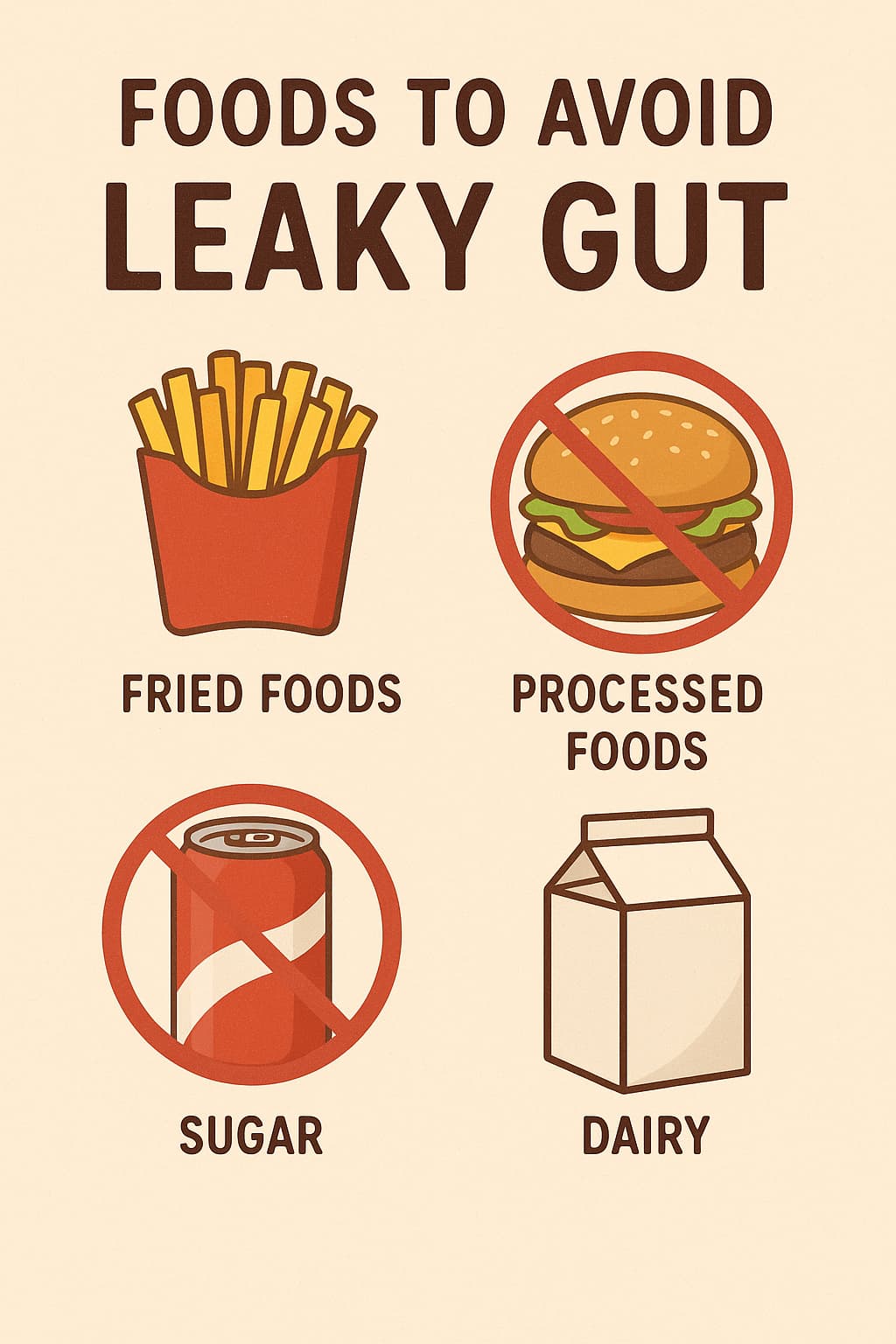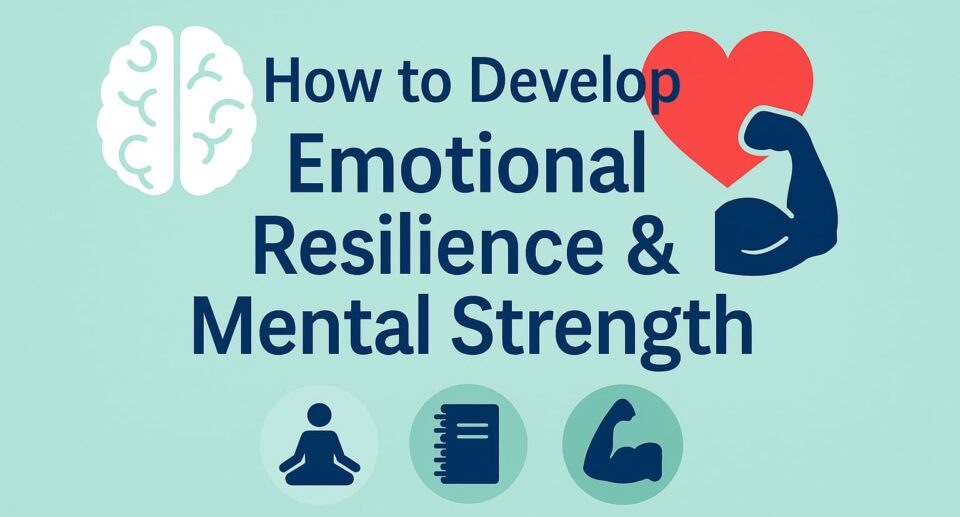How to fix leaky gut with a healthy diet


In our daily lives, we often suffer from various stomach problems, among which gas, bloating, and digestive issues are prevalent. However, many people are unaware that these issues can stem from a serious health condition known as Leaky Gut. In medical terms, it is also known as ‘intestinal permeability’.
Simply put, the inner wall of our intestines acts like a filter. It absorbs the nutrients from food and prevents harmful toxins, germs, and undigested food particles from entering the bloodstream. When this wall becomes weak or damaged, small cracks form in it. As a result, harmful substances mix directly into the bloodstream, which causes various physical problems.
In this article, we will discuss in detail what leaky gut is, what the causes behind it are, and most importantly, how to eliminate this problem through a healthy diet and lifestyle changes.
What is Leaky Gut and its Symptoms
Usually, the wall of our intestines acts like a filter, absorbing nutrients from food and preventing harmful toxins, germs, and undigested food particles from entering the bloodstream. When this wall is damaged, small cracks form in it. As a result, harmful substances mix with the bloodstream, which causes inflammation in different parts of the body.
Symptoms of Leaky Gut
The symptoms of leaky gut often resemble those of other diseases, making it challenging to diagnose correctly. However, some common symptoms are given below:
Digestive problems include gas in the stomach, bloating, diarrhea, constipation, and IBS.
Food sensitivities: Discomfort or reactions when eating certain foods, such as gluten or dairy products.
Fatigue: Feeling weak or tired all the time.
Skin problems: Acne, eczema, psoriasis, or other skin inflammation.
Mood swings: Depression, anxiety, or brain fog.
Joint pain: Pain or inflammation in the joints.
Weight changes: Sudden weight gain or loss.
Weakened immune system: Frequent colds, coughs, or other infections.
Causes of Leaky Gut


Poor diet: Consuming excess sugar, processed foods, alcohol, and artificial sweeteners can lead to inflammation in the intestinal lining. Gluten-rich foods (such as wheat) and dairy products in particular can cause Leaky Gut for some people.
Chronic stress: Stress weakens the body’s immune system and disrupts the balance of the gut microbiome. As a result, the intestinal wall is damaged.
Overuse of medications, including antibiotics and NSAIDs (Nonsteroidal anti-inflammatory drugs) such as ibuprofen, destroys beneficial bacteria in the intestines and damages their walls.
Toxins: Various types of toxins, such as pesticides, plastics, and air pollutants, enter the body and cause inflammation.
Balance of intestinal bacteria: Our intestines are home to billions of beneficial and harmful bacteria. When the number of beneficial bacteria decreases and the number of harmful bacteria increases, intestinal function is disrupted.
Nutritional Deficiency: The intestinal wall becomes weak due to the lack of essential nutrients, such as Vitamin D, Vitamin A, and Zinc.
What kind of food should you eat to cure Leaky Gut?
Dr. Alessio Fasano from Harvard has highlighted that an unbalanced diet low in fiber and high in sugar and saturated fats can weaken the intestinal lining and contribute to leaky gut.
Probiotic-rich foods: Probiotics are beneficial bacteria that maintain the balance of the digestive system. Regular consumption of yogurt, kefir, sauerkraut, and kimchi helps maintain good intestinal health.
Prebiotic-rich foods: Prebiotics are a type of fiber that acts as food for beneficial bacteria. Eating garlic, onions, bananas, asparagus, apples, and oats helps increase healthy bacteria in the intestines.
Healthy fats: The omega-3 fatty acids found in avocado, coconut oil, olive oil, and marine fish oil help reduce intestinal inflammation.
Bone broth: Bone broth contains a lot of collagen, proline, and glycine, which are very effective in repairing damaged intestinal walls. Drinking bone broth regularly increases the functioning of the digestive system.
Fiber-rich foods: Vegetables, fruits, and whole grains are rich in fiber, which aids in digestion and promotes good gut health.
Vegetable protein: Pulses, beans, chickpeas, and seeds are easy to digest and help reduce intestinal inflammation.
Ginger and turmeric: These two natural ingredients have powerful anti-inflammatory properties, which are very helpful in reducing intestinal inflammation.
Foods to Avoid If You Have Leaky Gut


Processed Foods: Chips, biscuits, packaged foods, and fast food are high in artificial ingredients, sugar, and unhealthy fats, which cause inflammation in the intestinal wall.
Sugar and Artificial Sweeteners: Excess sugar increases the number of harmful bacteria in the gut and increases inflammation. Sugary drinks, sweets, and other processed foods should be avoided.
Gluten-Containing Grains: Wheat, barley, and rye contain gluten. For many people, gluten can increase intestinal sensitivity and improve symptoms of Leaky Gut.
Dairy Products: For some people, dairy products, especially milk and cheese, are challenging to digest and can cause inflammation in the gut.
Excessive Alcohol: Alcohol directly damages the inner lining of the gut and weakens the immune system.
Soybeans and Corn: Genetically modified soybeans and corn can cause digestive problems for many people and increase inflammation.
Excess caffeine: Drinking too much tea or coffee can also increase intestinal inflammation for some people.
Leaky Gut Diet Plan
Breakfast
Option 1: Scrambled eggs with some vegetables (such as spinach or mushrooms).
Option 2: Protein shake made with almond milk, half an avocado, and a scoop of bone broth protein powder.
Option 3: A bowl of probiotic yogurt, with some berries (such as strawberries, blueberries), and flax seeds.
Lunch
Option 1: Grilled chicken or fish with a large salad (lettuce, cucumber, tomato). Use olive oil and lemon juice on the salad.
Option 2: A bowl of vegetable soup (made with bone broth) with some vegetables (such as carrots, cauliflower, broccoli).
Option 3: Vegetable stew made with vegetables.
Snack
Option 1: A handful of nuts (cashew nuts, pistachios) or seeds (pumpkin seeds, sunflower seeds).
Option 2: An apple or a banana.
Option 3: A cup of bone broth.
Dinner
Option 1: Boiled fish or grilled chicken with boiled vegetables (broccoli, green peas).
Option 2: Vegetable stir-fry with mushrooms, broccoli, and spinach.
Option 3: A bowl of lentils, boiled rice (if not digestible), or salad.
Lifestyle changes


Reduce stress: Chronic stress hurts the digestive system. Techniques like yoga, meditation, deep breathing exercises, and spending time in nature can help reduce stress.
Adequate sleep: Adequate sleep is essential to keep the body healthy and repair the intestinal walls. Try to get 7-8 hours of sleep every day.
Regular exercise: Engaging in light to moderate regular exercise can improve the digestive process and help reduce stress. Walking, cycling, or swimming are very beneficial in this regard.
Drink enough water: Drinking enough water throughout the day keeps the digestive process active and helps to flush toxins out of the body.
Eat slowly: Eat slowly and chew your food well without rushing. This makes the digestion process easier and reduces the stress on the digestive system.
Key takeway How to fix leaky gut with a healthy diet
The problem of Leaky Gut is a silent issue in our daily lives, which, if ignored, can cause significant damage to the body. It is possible to get rid of this problem by making proper dietary and lifestyle changes. Adding beneficial foods to your diet, such as foods rich in probiotics and prebiotics, healthy fats, and fiber, will restore your gut health. At the same time, you should avoid processed foods, sugar, and gluten-containing foods.
In addition to a diet plan, reducing stress, getting enough sleep, and regular exercise are equally important. These habits will strengthen your digestive system and improve your body’s immune system.
Remember, healing Leaky Gut is a continuous process that requires patience and discipline. Listen to your body, take the proper steps, and live a healthy and beautiful life.









